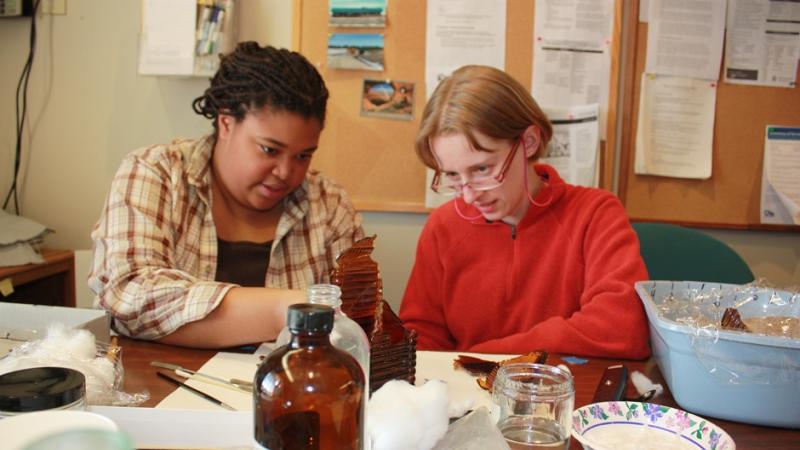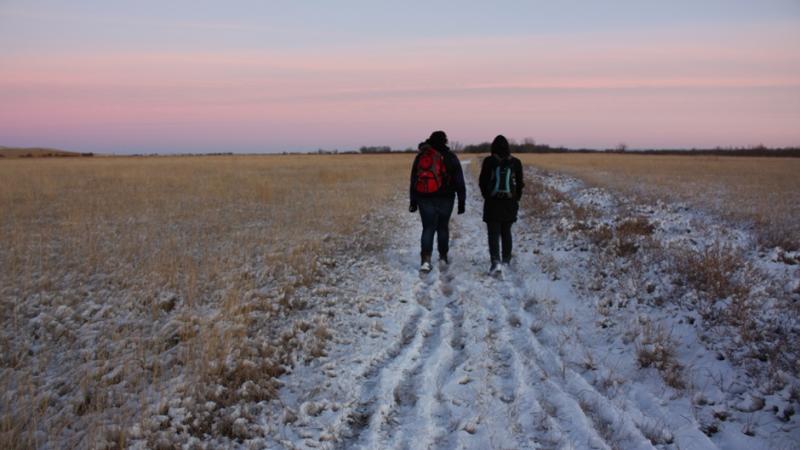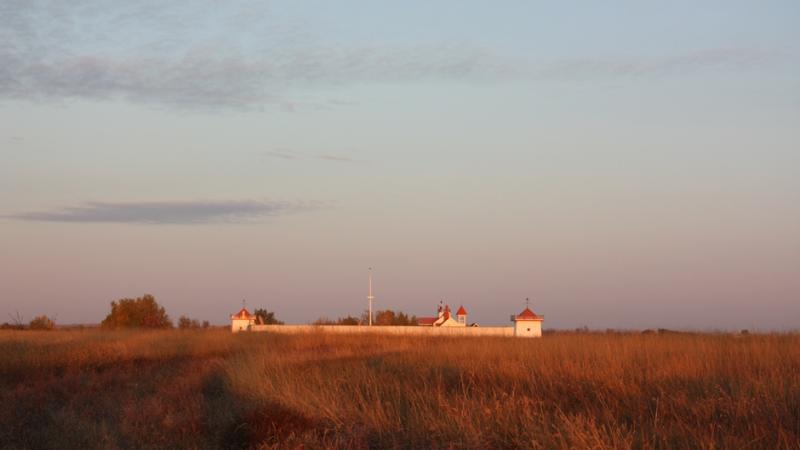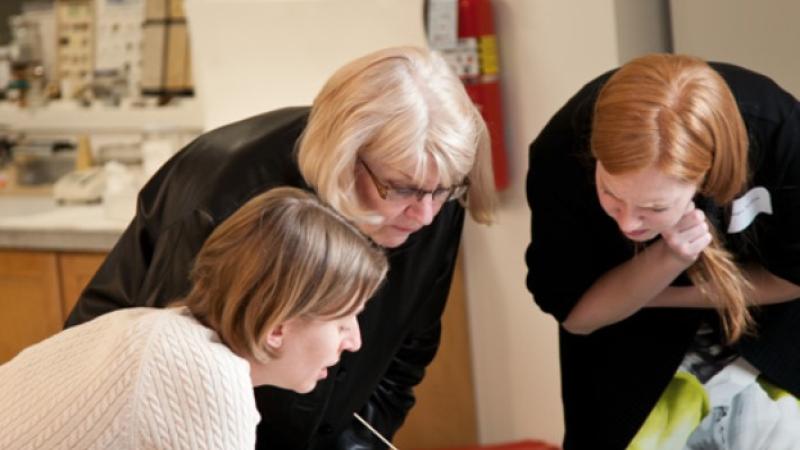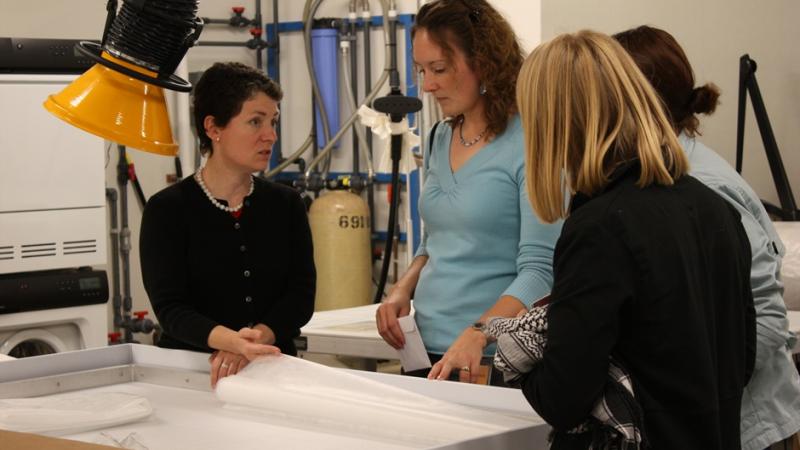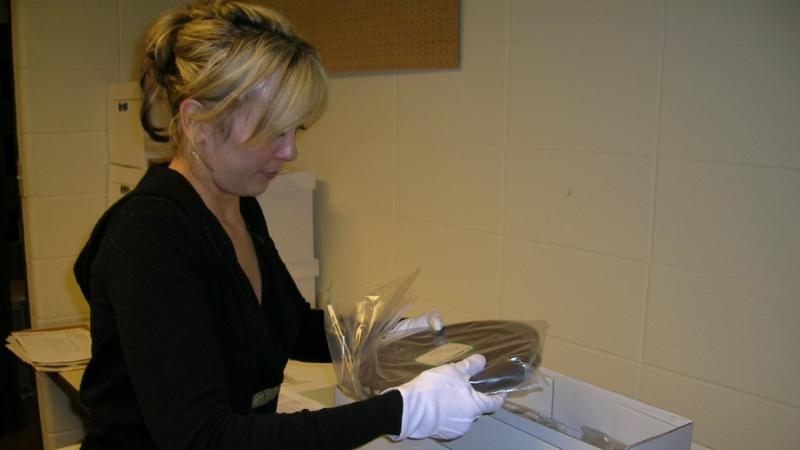Preservation Week 2014: Education and Training
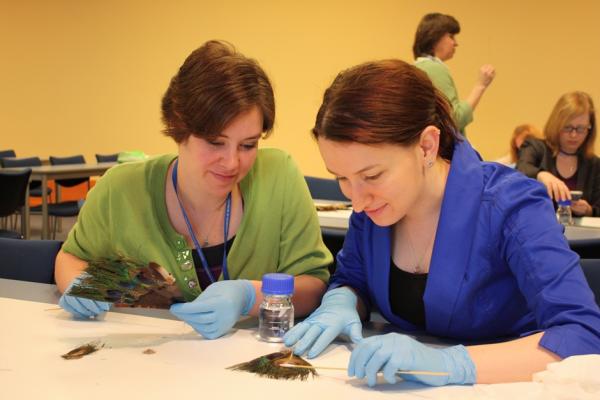
Participants building skills at a workshop on arsenic testing in Minnesota.
Courtesy of Midwest Art Conservation Center

Participants building skills at a workshop on arsenic testing in Minnesota.
Courtesy of Midwest Art Conservation Center
Every year, Preservation Week is a wonderful opportunity for agencies, cultural heritage institutions, and the public to come together and share knowledge of the latest advances, strategies, and activities around good stewardship. This year, the Division of Preservation and Access at the National Endowment for the Humanities would like to share some of our recent efforts that have supported national and regional preservation education programs. Grants that support educational activities, awarded through the Preservation and Access Education and Training program, help the staff of cultural institutions obtain the knowledge and skills needed to serve as effective stewards of humanities collections, introducing them to new preservation techniques and disseminating knowledge about preservation best practices.
Responding to Regional Preservation Needs
One way that NEH supports this work is through grants to regional preservation field services. In the Midwest, a recent award to the Minneapolis-based Midwest Art Conservation Center (MACC) offers one example. MACC is a non-profit center that, in part, supports regional education and training programs that strengthen preservation practices and improve the care of humanities collections at hundreds of museums, historical organizations, libraries, and archives in five states of the Upper Midwest—Iowa, Minnesota, North Dakota, South Dakota and Wisconsin. This region covers an area of over three hundred thousand square miles with a population of over fifteen million, and houses thousands of publicly held collections. The mix of rural and urban institutions presents a service challenge, particularly for institutions in small or remote communities that may not have ready access to preservation resources or institutions that may not be able to employ full-time preservation staff. According to recent surveys, most institutions in the Upper Midwest are small- or mid-sized, and over half rely on part-time staff or volunteers to care for collections, and most have expressed the need for further staff training in preservation.
To respond and meet the goal of strengthening preservation practices at cultural heritage institutions throughout the Upper Midwest, MACC’s preservation services program offers training workshops, disaster response assistance, preservation needs assessments, the loan of environmental monitoring equipment, and other technical information and outreach services. The current NEH grant allows MACC to offer more workshops at lower cost for participants. Workshops this year are addressing a range of preservation topics, including research and writing of long-range preservation plans, storing and preserving photographic materials, caring for scrapbooks and albums, identifying toxic or dangerous artifacts, digital preservation, disaster preparedness and response, and monitoring of environmental conditions in collection storage spaces.
NEH is particularly pleased to note preservation and education activities held in rural communities. For example, MACC recently held a series of workshops at the Fort Union Trading Post near Williston, North Dakota, on the care of glass and metal collection items. To serve the diverse Native American communities of the Upper Midwest, MACC has also developed workshops in the care and preservation of feathers and for ethnographic collections in general. In addition, MACC has sponsored workshops for Native American cultural heritage professionals nationwide through the Association for Tribal Archives, Libraries, and Museums. All told since 2012, MACC has reached thousands of cultural heritage professionals through workshops, individual collection care advice, disaster response, technical publications, and educational presentations across the Upper Midwest.
Expanding National Capacity for Preservation Action
NEH supports regional field services throughout the United States that serve cultural heritage institutions in all areas. Other field services currently supported by NEH grants include:
- Southwest: Amigos Library Services
- West: Balboa Art Conservation Center (BACC)
- Mid-Atlantic: Conservation Center for Art and Historic Artifacts (CCAHA)
- Southeast and Plains: Lyrasis Preservation Field Services
- Northeast Document Conservation Center (NEDCC)
- Western States and Territories Preservation Assistance Service (WESTPAS)
Each regional organization offers services tailored to local needs, while as a whole this network of services increases the nationwide capacity for cultural heritage preservation. For more information about preservation field service programs, including those funded by NEH as well as others, visit the Regional Alliance for Preservation.
